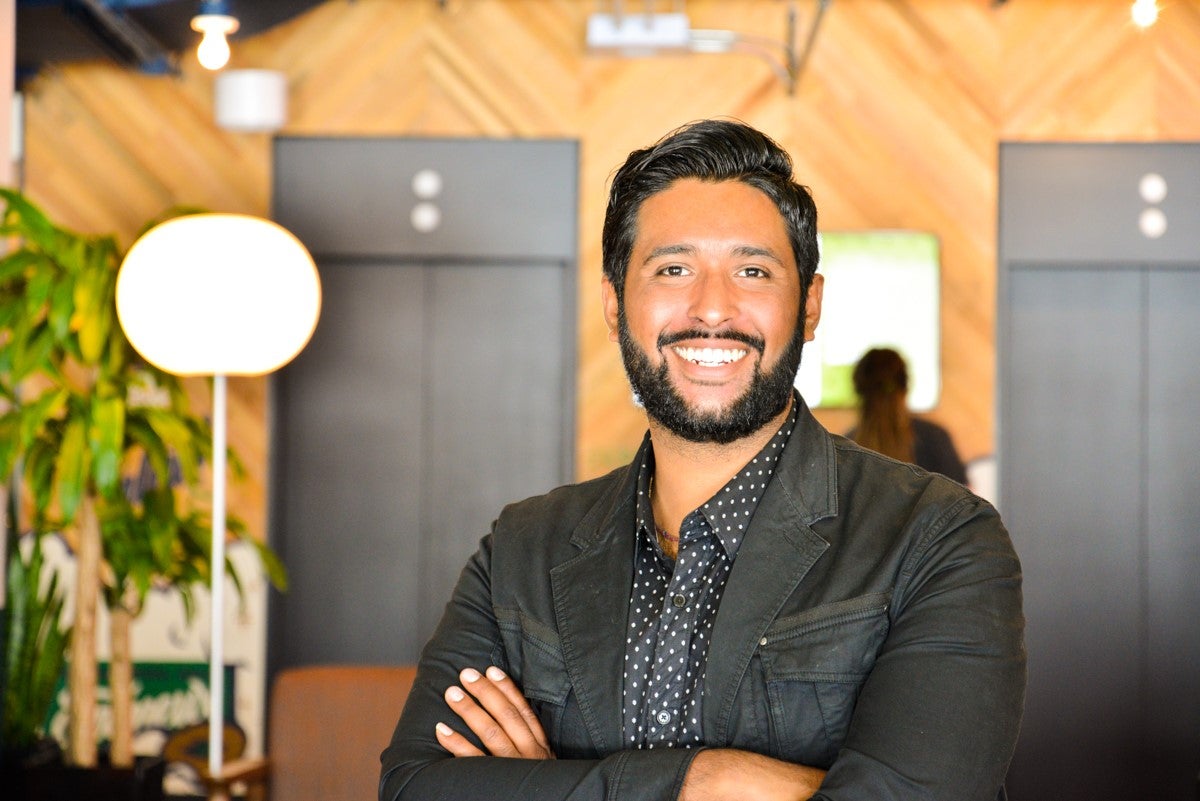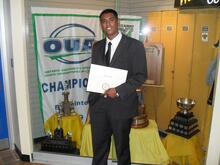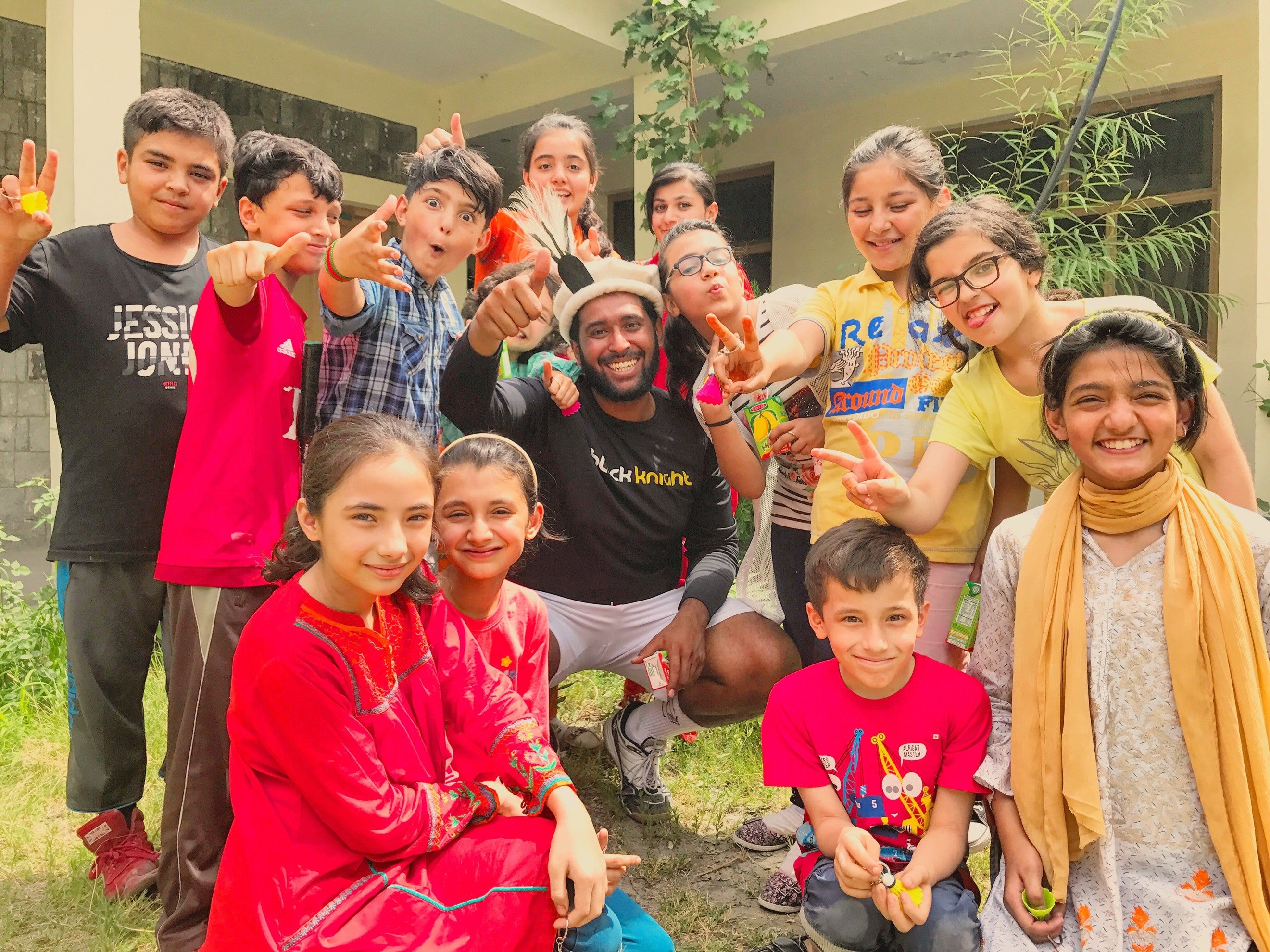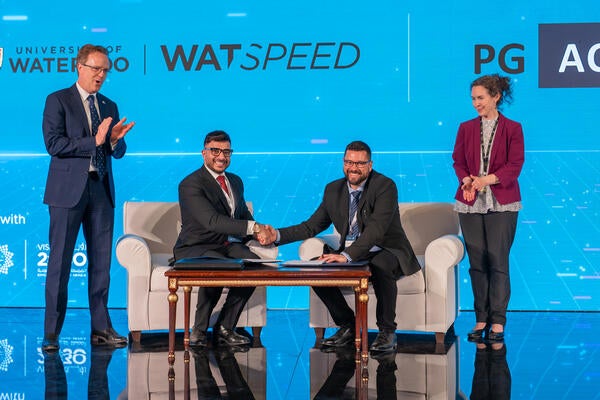
Impact beyond borders and languages
As a business owner and volunteer, Rahim Karmali (BA ’10) inspires hope and helps to break down barriers worldwide.

As a business owner and volunteer, Rahim Karmali (BA ’10) inspires hope and helps to break down barriers worldwide.
By Rahim Karmali (BA ’10) AlumnusI often get asked how I find the time to manage my projects. I think the answer is pretty simple — I make the time.
Every day, I dedicate myself to working towards initiatives that inspire hope and help break down barriers, around the globe and right here at home in Canada. The opportunity to impact lives through sports and languages is something I have been tremendously lucky to experience first-hand, and it all goes back to my time at UWaterloo.

When I enrolled at the University, I had no idea what to expect as a young French-Canadian kid from Montreal, Quebec. Nevertheless, that quickly changed when I experienced the amazing campus life, helped lead the Warriors to an OUA badminton title, and made friendships that will surely last a lifetime. My Waterloo days proved to be a time of tremendous discovery and personal growth. It’s where my entrepreneurial journey began, where badminton became more than a sport and where my love for bilingualism officially sparked.

While at the University, I had the opportunity to work several side gigs such as a research assistant for the Department of French Studies and a junior translator for the CFL. I also started my very first business as a French tutor for about 12 students. Upon graduating, I realized my academic path was not yet over and decided to pursue graduate studies in Communication at the University of Ottawa. While working part-time as a teaching assistant for the Department of Communication and the Faculty of Arts co-op program, I completed my thesis investigating the legislation of multiculturalism and second-generation hybrid identities in Canada. Following graduation, I joined Badminton Canada for a few years as the Marketing and Communications Manager, where I further developed my experience and eventually went solo to launch Serv.
Learning from my past experiences allowed me to start a passion project that turned into a business. At Serv, our mission is to continue bridging the gap and knocking down communication barriers with bilingual services in translation, copywriting and proofreading. These days, I divide my time between our offices in Toronto and Montreal. My team and I have delivered more than 75 localization projects and produced over 5 million words for industry-leading partners such as Panasonic, Transat, Desjardins, Johnson & Johnson, Remax, Red Cross, CAMH and more.

I think experiencing success on- and off-court over the years truly provided me with the confidence and motivation to give back and volunteer for my communities. After four years as Director of Media, Marketing and Communications at the World Partnership Walk in Montreal, Canada’s largest fundraising event dedicated to helping end global poverty, I’m proud to now be a part of the Aga Khan Development Network’s Global Sports Design and Development team. This development program aims to help develop elite student-athletes in the far reaches of the world such as the Hunza Valley in Northern Pakistan (2017, pictured above) and the East-African coastal city of Mombasa in Kenya (2018).
What advice can I give to you? It’s all about balance. Make sure you work hard and prioritize your time. Once you are done at UWaterloo, use those experiences and memories to your advantage, because you never know how they’ll help you in the long run.
Rahim is the CEO at Serv, a bilingual team of wordsmiths providing custom localization services in translation, copywriting and proofreading.

Read more
University of Waterloo and Progressive Generation Holding partner to deliver world-class media production and boost creative economy

Read more
Discover how Waterloo alumni are driving Canada’s economy with five tech companies making a local and global impact

Read more
Meet the 13 exceptional students representing Waterloo’s newest grads
The University of Waterloo acknowledges that much of our work takes place on the traditional territory of the Neutral, Anishinaabeg, and Haudenosaunee peoples. Our main campus is situated on the Haldimand Tract, the land granted to the Six Nations that includes six miles on each side of the Grand River. Our active work toward reconciliation takes place across our campuses through research, learning, teaching, and community building, and is co-ordinated within the Office of Indigenous Relations.